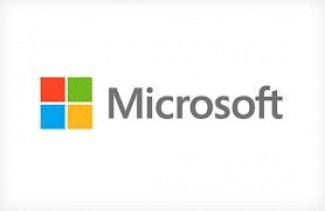For most investors, a company that diversifies is deemed to be tactful and aggressive. Not only does it open up favorable prospects for the company, but it also avails something to fall back on in case things go south. Nonetheless, diversification can also pass by as a well-disguised trial and error; more so if a company is already established in doing one thing. This is exactly what comes to mind when I look at Microsoft Corporation (NASDAQ:MSFT).
There was a time when the software giant was synonymous with its Windows Empire and at the time paid very little attention to other segments in the industry. This changed when the scales tilted in favor of Google Inc (NASDAQ:GOOG) and Apple. Microsoft can no longer peg its hopes on the buckling PC segment. Instead, it is dipping its toe in every segment it can. I am convinced that this is a disguised attempt at trial and error. Microsoft Corporation (NASDAQ:MSFT) wants to maintain its relevance at a time when even some of the biggest names, like Apple, are losing their luster.

Enterprise
In the recent second quarter earnings call, the tech titan’s multi-year licensing from its enterprise customers increased 17 percent. This heavily contributed to the $21.46 billion record revenue that was posted. Similarly, its Server and Tools division posted a 9 percent revenue increase, driven by the launch of Windows Server 2012 and MySQL server 2012.
Microsoft Corporation (NASDAQ:MSFT)’s prospects in enterprise will also be aided by Nokia Corporation (ADR) (NYSE:NOK). The Nokia Lumia has already started making notable inroads into the enterprise market, as noted with its win over Foxtons, a U.K real estate agency. I have particularly singled out Nokia as it too is fighting to eke its piece out of the enterprise market that is largely dominated by Blackberry. This presents a win-win situation for both Nokia and Microsoft.
Cloud
With the future of cloud computing seeming rosier by the day, Microsoft Corporation (NASDAQ:MSFT) has not wasted any time in regard to this. It is banking on the surging demand for cloud products and hopes that it will trigger trajectory growth for some of its recognizable brands in the sector, including Yammer and Skype.
Tablets
The Surface initiative was designed to not only gnaw into bigger competitors’ turfs but to also offset the decline of business in the PC sector. As pointed out earlier in one of my recent writings, demand for tablets is quickly gaining momentum. Going by the trend, shipments of tablets will soon- and by soon I mean somewhere this year- go ahead of PCs.
Here is a chart I pulled from my previous writing on tablets.

The chart clearly demonstrates my argument; tablets shipments will soon outstrip PC shipments. Don’t bother looking at smartphones, that ship sailed a long time ago.
Microsoft Corporation (NASDAQ:MSFT) CFO Peter Klein did not give the exact number of tablets that were shipped during the second quarter earnings call. Nonetheless, he argued that demand was encouraging. “Demand exceeded the limited assortment of touch devices available,” he said. This should however not stir any excitement. The tablet has only been available at select stores and at Microsoft’s own stores. Klein revealed that efforts to increase production will gain momentum in this quarter.
Mobile
This is inarguably the sector that took Microsoft down. Before the shiny smartphone in your pocket was introduced into the market, Microsoft Corporation (NASDAQ:MSFT) was one of the key leaders in the tech industry, renowned for revolutionary products and impossible margins. The arrival of the iPhone, coupled with Apple’s innovative spirits, however crushed Microsoft.
In an attempt to get back on the saddle, Microsoft is doing a lot to create a redoubtable force in the space. This year, Microsoft plans to enhance its smartphone line up. It also intends to increase retail distribution and capacity. During the earnings call, it noted that its smartphone sales were 4 times higher than they were a year ago. I would argue that this ‘4 times’ scenario is brought about by the fact that sales volume was low last year.
Perhaps the biggest step that Microsoft Corporation (NASDAQ:MSFT) has taken so far with regard to mobile is its strategic partnership with Nokia. Microsoft has positioned itself the same way Google did with Samsung. Google has managed to ride on the back of Samsung. Going by global market share, Google’s android market share currently dominates. Microsoft hopes that it can achieve similar or even greater feats with Nokia.
Recent reports show that Nokia’s Windows-powered Lumia is gaining notably; this could pan out well for Microsoft. Indeed, some of the latest figures reveal that roughly four out of every 5 Windows 8 Phone devices are produced by Nokia. These statistics help to explain the growth in Windows 8 phones, which increased from 1.8 percent to 3 percent during the past quarter.
Windows 8 Integration knits it all
Tech fanatics may argue that the Windows 8 integration is just another demonstration of futuristic innovation. I have no argument against that. Notwithstanding, my view is that this integration knits most, if not all, of Microsoft’s initiatives together. It provides a platform that can help cut across all segments and in doing so; helps it protect its market share from belligerent competitors like Google. True to it, Windows is gaining remarkably. During the past quarter, Microsoft recorded $6.9 billion in Windows revenue, up 28 percent year-over-year.
As a bonus, the tech big wig has even gotten into the ‘patent segment’. Yes, patent wars have become a part of the business too- just ask Samsung and Apple. Recent news reports show that Microsoft supports Oracle in its Java case against Google. Oracle is appealing to a U.S district court to reverse an earlier ruling which had concluded that the copyright claims against Google, in relation to Java, held no ground. In May last year, Microsoft recorded a minor win after a German court concluded that Motorola, Google’s subsidiary, had infringed Microsoft’s patent in relation to text messaging technology.
Conclusion
Despite tech investors’ current inclination toward stocks with high growth prospects in mobile, Microsoft is not- just yet – placing all its efforts in mobile. The headwinds created by Samsung and Apple in the smartphone market are too strong and Microsoft Corporation (NASDAQ:MSFT) has been forced to diversify in an attempt to spread its risks and keep investors happy.
Nonetheless, Microsoft’s profit in the past quarter slipped 4 percent to come in at 78 cents, or $6.62 billion. In addition, most of its efforts are in the initial stages. I would therefore not recommend the stock to an investor looking to make a quick buck. However, its well-disposed prospects are indicative of a good long term play. A buy and hold approach is recommended.
The article Microsoft’s Diversification Is A Well Disguised Trial And Error originally appeared on Fool.com and is written by Lennox Yieke.
Copyright © 1995 – 2013 The Motley Fool, LLC. All rights reserved. The Motley Fool has a disclosure policy.





